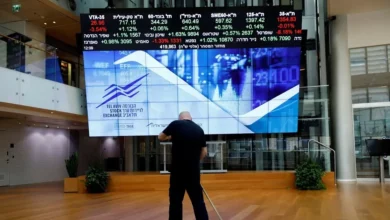What Bitcoin halving in April means for investors: Key facts and insights

In the dynamic world of cryptocurrencies, the Bitcoin halving event stands out as a pivotal moment, drawing attention from enthusiasts and investors alike. Scheduled to occur in April this year, this event is expected to halve the block rewards for miners, significantly impacting Bitcoin’s valuation and its role in the broader digital asset landscape.
Unlike fiat currencies, which have an unlimited supply, Bitcoin halving is a deflationary feature that reduces the minting of new Bitcoins by 50 percent every four years until all 21 million Bitcoins are minted in 2140.
The anticipated Bitcoin halving process follows the SEC’s approval of Bitcoin Exchange-Traded Funds (ETFs). This once-in-nearly-four-years event is expected to halve the block rewards given to miners from 6.25 to 3.125 bitcoins, which is set to effectively reduce the supply of the digital currency.
Analysts believe that this event could significantly impact Bitcoin’s price, potentially increasing demand with the launch of spot ETFs at the beginning of this year.
With fewer Bitcoins in circulation and more institutional financial bids for the currency, we might witness a supply squeeze that could place a very high premium on the circulating Bitcoin. Thus, Bitcoin miners are likely to be among the biggest overall beneficiaries.
What history teaches us
Sergey Sheleg, the Chief Product Officer at Nicegram, a Telegram-based messenger app that caters to unique crypto and web3 communities, highlights the significance of the Bitcoin halving event. He notes that past halvings have traditionally led to a surge in Bitcoin’s price, citing historical data where Bitcoin’s value soared following the 2012, 2016, and 2020 halvings.
However, Sheleg points out that significant price corrections often followed these peaks.
Looking at the current scenario, Sheleg observes a different trend. The upcoming halving coincides with a positive sentiment in the crypto market, bolstered by the recent SEC ruling on spot Bitcoin ETFs in the US market.
He states, in an exclusive interview , “This year’s halving though looks set to be different from a long-term investment view. The ruling [of the spot Bitcoin ETFs] has come at the right time, allowing even the most cautious investors to educate themselves about Bitcoin and test its waters as investors.”
According to Sheleg, this development is attracting cautious investors and enhancing Bitcoin’s reputation beyond just a store of value. He anticipates a more balanced market response, with steady gains rather than abrupt spikes, as investor maturity tempers speculation.
“The next 8-12 months and the cooling period thereafter will be crucial to see how Bitcoin fares in this’ investor see-saw,’ particularly for its future as a reliable asset,” he said.
A balanced outlook
Peter Alfred-Adekeye, the CEO and Founder of Boom, offers a complementary yet distinct perspective. In an exclusive interview with Al Arabiya English, he emphasized Bitcoin’s deflationary nature, contrasting it with the unlimited supply of fiat currencies.
Alfred-Adekeye views the halving as a mechanism that preserves Bitcoin’s scarcity, thereby increasing its unit value and ensuring miner engagement until all Bitcoins are minted.
Alfred-Adekeye predicts a bullish future for Bitcoin, expecting its value to reach around $104,000 by April 2025.
He attributes this to the launch of Bitcoin ETFs in major regional stock markets across Europe, the Middle East, Africa, and Asia. These developments, he believes, will make crypto more accessible to retail investors and inject substantial liquidity into the market.
Insights from both Sheleg and Alfred-Adekeye paint a picture of cautious optimism for Bitcoin’s future. While acknowledging the historical volatility following halving events, both experts foresee a more stable and mature market response this time around.
The combination of regulatory advancements, increased investor education, and broader market accessibility point toward a significant yet balanced impact on the upcoming Bitcoin, halving its value and role as a digital asset.
Bitcoin’s comeback
Bitcoin has made a powerful comeback, surpassing the trillion-dollar level in market value and pushing the overall cryptocurrency market to the brink of two trillion dollars.
The world’s most popular cryptocurrency has more than tripled in value, reaching $52,000 since November 2022. This remarkable increase came after a year marked by the notable collapse of the cryptocurrency exchange FTX, leading to liquidity crises in many smaller crypto firms.
The financial inflows into Bitcoin were bolstered by the recent launch of Exchange-Traded Funds (ETFs) that invest directly in the cryptocurrency, making it easier for retail investors to place their funds in the asset.
Bitcoin’s value has risen by approximately 13 percent since January 10, when US regulators gave the green light for the adoption of the ETFs. Despite this surge, Bitcoin is still far from its all-time high of $69,000, which it reached in November 2021.










